- Home
- Jack Higgins
the Last Place God Made (v5) Page 7
the Last Place God Made (v5) Read online
Page 7
It was a nasty business. Mannie found them early on Sunday morning when he was taking a walk before breakfast and sent one of the labourers for me. By the time I got there people were already hurrying along to the jetty in twos and threes.
The canoe had grounded on the sandbank above the jetty, pushed by the current. The occupants, as was discovered later from their papers, were rubber tappers and were feathered with more arrows than I would have believed possible.
They had been dead for at least three days and were in the condition you would have expected considering the climate, flies buzzing around in clouds and the usual smell. There was one rather nasty extra. The man in the stern had fallen backwards, one arm trailing in the water and the piranha had taken the flesh from his bones up to the elbow.
No one was particularly cheerful after that and they clustered in small groups, talking in low voices until Figueiredo arrived and took charge of things. He stood there leaning on his stick, face sombre, the sweat soaking through shirt and linen jacket and watched as half a dozen labourers with handkerchiefs around their faces got the bodies out.
The Huna bows were six feet in length, taller than the men who used them and so powerful that an arrow taken in the chest frequently penetrated the entire body, the head protruding from the back. They were usually tipped with piranha teeth or razor-sharp bamboo.
A labourer pulled one out of one of the corpses and handed it to Figueiredo. He examined it briefly then snapped it in his two hands and threw the pieces away angrily.
'Animals!' he said. 'They'll be coming out of the jungle next.'
Which started the crowd off nicely. They wanted blood, that much was evident. The Huna were vermin and there was only one way to handle vermin. Extermination. The voices buzzed around me. I listened for a while, then turned, sick to the stomach, and walked away.
*
I was helping myself to a large Scotch from Hannah's private stock when Mannie came in. That bad?' he said calmly.
'Everywhere you go, the same story,' I said. 'It's always the Indians' fault - never the whites.'
He lit one of those foul-smelling Brazilian cigars he favoured and sat on the veranda rail. 'You feel pretty strongly about all this. Most people would think that strange in someone who was at Forte Tomas. Who came as close to being butchered by Indians as a man can get.'
'If you reduce men to symbols, then killing them is easy,' I said. 'An abstraction. Kill a Huna and you're not killing an individual - you're killing an Indian. Does that make any kind of sense to you?'
He was obviously deeply moved and at a distance of years knowing in detail what was even then happening to his people, I suppose the plain truth was that I was hitting close to home.
He said, 'A profound discovery to make so early in life. May I ask how?'
There was no reason not to speak of it although the tightness was there in the chest the moment I began, the constricted breathing. An unutterable feeling of having lost something worth having.
'It's simple,' I said. 'In my first month on the Xingu I met the best man I'm ever likely to see if I live to be a hundred. If he'd been a Catholic, they'd have tossed a coin to decide between burning or canonising him.'
'Who was he?'
'A Viennese named Karl Buber. He came out here as a young Lutheran pastor to join a mission on the Xingu. He threw it all up in disgust when he discovered the unpalatable fact that the Indians were suffering as much at the hands of the missionaries as of anyone else.'
'What did he do?'
'Set up his own place up-river from Forte Tomas. Dedicated his life to working amongst the Civa and they could teach the Huna a thing or two, believe me. He even married one. I used to fly him stuff up from Belem without the company knowing. He was the best friend the Civa ever had.'
'And they killed him?'
I nodded. 'His wife told him her father was desperately wounded and in urgent need of medical attention after the Forte Tomas attack. When Buber got there, they clubbed him to death.'
Mannie frowned slightly as if not quite understanding. 'You mean his own wife betrayed him?'
'She did it for the tribe,' I said. 'They admired Buber for his courage and wisdom. They killed him as Father Conte was killed at Santa Helena, that their chiefs might have his brains and heart.'
There was genuine horror on his face now. 'And you can still think kindly of such people?'
'Karl Buber would have. If he were here now, he'd tell you that the Indian is as much a product of his environment as a jaguar. That he only survives in that green hell out there across the river by being willing to kill instinctually, without a moment's thought, several times a day. Killing is part of his nature.'
'Which includes killing his friends?'
'He doesn't have any. He has his blood ties - family and tribe. Anyone else is outside and on borrowed time. Ripe for the block sooner or later as Buber discovered.'
I poured another whisky. Mannie said, 'And what is your personal solution to the problem?'
'There isn't one,' I said. 'There's too much here worth the having. Diamonds in the rivers, every kind of mineral ever heard of and probably a few we haven't. Now what man worth his salt would let a bunch of Stone-Age savages stand between him and a slice of that kind of cake?'
He smiled sadly and put a hand on my shoulder. 'A dirty world, my friend.'
'And I've had too much to drink considering the time of day.'
'Exactly. Go have a shower and I'll make some coffee.'
I did as he suggested, sluicing myself in lukewarm water for ten minutes or so. As I was dressing, there was a knock at the door and Figueiredo stuck his head in.
'A bad business.' He sank into the nearest chair, mopping his face with a handkerchief. 'I've just been on the radio to Santa Helena, giving Alberto the good news.'
The military had installed a much more powerful radio transmitter and receiving unit than his in the hangar and had left a young corporal to man it.
'Hannah stayed up there overnight,' I said as I pulled on my flying jacket. 'Any word from him?'
Figueiredo nodded. 'He wants you to join him as soon as possible.'
'At Santa Helena?' I shook my head. 'You must have got it wrong. I've got the mail run to make to Manaus.'
'Cancelled. You're needed on military business which takes precedence.'
'Well, that's intriguing,' I said. 'Any idea what it's all about?'
He shook his head. 'Not my business to know. Where military affairs are concerned, I have no jurisdiction at all and what's more, I like it that way.'
Mannie kicked open the door and came in with coffee in two tin cups. 'You've heard?' I said.
He nodded. 'I'd better get across to the hangar and get the Bristol ready to move.'
I stood at the window beside Figueiredo, sipping my coffee, gazing down towards the jetty. A cart came towards us, pulled by a couple of half-starved oxen, a collection of moving bones held together by a bag of skin. The driver kept them going by sticking a six-inch nail on the end of a pole beneath their tails at frequent intervals.
As the cart went by, the smell told us what was inside. Figueiredo turned, an expression of acute distaste on his face. He opened his mouth to speak and the rain came down in a sudden rush, rattling on the corrugated-iron roof, drowning all sound.
We stood there together and watched the cart disappear into the gloom.
*
It was still raining when I took off, not that I was going to let that put me off. The massacre of Santa Helena had been worse, but the two poor wretches in the canoe had brought a whiff of the open grave with them, a touch of unease, a feeling that something waited out there in the trees across the river. Landro was definitely a place to put behind you on such a morning.
I followed the river all the way and seeing no reason to push hard, especially once I ran out of the rain, took a good hour over getting there, giving myself time to enjoy the flight.
I went in low over Santa Helena itself,
just to see how things stood. The mission launch was just leaving the jetty and moving down-river, but the old forty-foot military gunboat was still there. A couple of soldiers moved out of the hospital and waved and Hannah came out of the priest's house. I circled again, then cut across the river and dropped into the airstrip.
There was a permanent guard of ten men with two heavy machine-guns. The sergeant in charge detailed one man to take me up to Santa Helena in a dinghy powered by an outboard motor.
Hannah was waiting at the end of the jetty, smoking a cigarette. 'You took your own sweet time about getting here,' he commented sourly.
'Nobody told me there was any rush,' I said as I scrambled up on to the jetty. 'What's it all about anyway?'
'We're going to drop a few Christmas presents into your friends the Huna,' he said.
He had a couple of large sacks with him which he handed to the soldier in the boat. He went down the ladder and cast off. 'I'll send him back for you. I've got things to do. You'll find Alberto at the priest's house. He'll fill you in.'
He sat down in the prow, lighting another of his interminable cigarettes and shoved his hands into the pockets of his leather coat, looking about as fed-up as it was possible to be.
I was completely mystified by the whole affair and keen for an early explanation, so I turned away and hurried along the jetty. There was a sentry at the land end who looked bored and unhappy, sweat soaking through his drill tunic. There were two more beside a machine-gun in the church porch.
I found Alberto in the priests's house. He was lying on a narrow bed, minus his breeches, his right leg supported across a pillow while his medical corporal swabbed away at a couple of leg ulcers with cotton wool and iodine. Alberto, who looked anything but happy, was obtaining what solace he could from the glass in his left hand and the bottle of brandy in his right.
'Ah, Senhor Mallory,' he said. 'I would not wish these things on my worst enemy. Like acid, they eat right through to the bone.'
'Better than having them on your privates.'
He smiled grimly. 'A sobering thought. Has Captain Hannah explained things to you?'
'He said something unintelligible about Christmas presents for the Huna, then took off across river. What's it all about?'
'It's simple enough. I've managed to lay hands on a half-breed who's been living with them. He's fixed the position of their main village for me on the map. About forty miles into the bush from here.'
'You're going to attack?'
He groaned aloud and moved restlessly under the corporal's hand, sweat beading his forehead. 'An impossibility. It would take us at least three weeks to force a way through even if my man agreed to lead us which he would certainly refuse to do under those circumstances. It would be suicide. They'd pick us off one by one.'
'What about reinforcements?'
'There aren't any. They're having trouble with the Civa along the Xingu again and the Jicaro are making things more than difficult along their stretch of the Negro. My orders are to come to some sort of terms with the Huna, then to abandon Santa Helena. I've just sent the mission launch down to Landro with everything on board worth saving.'
'And why am I here?'
'I want you to fly to this Huna village with Hannah. Drop in a couple of sackfuls of trade goods of various kinds, as a gesture of goodwill. Then I'll send in this man who's been living with them to try and arrange a meeting for me.'
He reached for a clean glass as the sergeant started to bandage his leg, half-filled it with brandy and passed it across to me. I didn't really want it, but took it out of politeness.
He said, 'I've been making inquiries about you, Mallory. You were friendly with that madman Buber when you were on the Xingu. Probably know more about Indians than I do. What kind of chance do you think my plan has of working?'
'Not a hope,' I said. 'If you want the truth, that is.'
'I agree entirely.' He toasted me then emptied his glass. 'But at least I'll have made the kind of positive step to do something that even Headquarters won't be able to quarrel with.'
I tried the brandy which tasted as if someone had made it in the bath. I placed the glass down carefully. 'I'll be off then. Presumably Hannah is straining at the leash.'
'He isn't too pleased, I can tell you that.' Alberto reached across and picked up my glass. 'Safe journey.'
I left him there and went out into bright sunlight again. The heat was terrific, dust rising from the dry earth with each step, and the jungle was already beginning to creep in at the back of the hospital, lianas trailing in across the roof from the trees. It didn't take long. People came and went, but the forest endured, covering the scars they left as if they had never existed.
The dinghy was waiting and had me back across at the landing strip in a quarter of an hour. I found Hannah lying in the shade of the Hayley's port wing, studying a map. He was as bad-tempered and morose as ever.
'Well, what do you think?' he demanded impatiently.
'A waste of time.'
'Exactly what I told him, but he will have it.' He got to his feet. 'Have a look at that. I've marked a course although the bloody place probably won't exist when we get there.'
'You want me to fly her?'
'That's what I pay you for, isn't it?'
He turned and climbed up into the cabin. Strange, in view of what happened afterwards, but I think it was at that precise moment in time that I started to actively dislike him.
*
I flew at a thousand feet and conditions were excellent, the sun so bright that I had to wear dark glasses. Hannah was directly behind me in the front passenger seat beside the rear door. He didn't say a word, simply sat there scanning the jungle below with a pair of binoculars.
Not that it was really necessary. No more than fifteen minutes after leaving the airstrip we passed over a large clearing and I went down to five hundred and circled it a couple of times.
'Wild banana plantation,' Hannah said. 'We're dead on course. Must be.'
Most forest Indians engaged in a crude form of husbandry when clearings such as the one below allowed it and it was an infallible sign that we were close to a large village.
I flew on, staying at five hundred feet and almost immediately felt Hannah's hand on my shoulder. 'We're here.'
The clearing seemed to flower out of the jungle beneath my port wing. It was larger than I had expected, fifty yards in diameter at least, the thatched long huts arranged in a neat circle around a central space with some sort of tribal totem in the centre.
There must have been two hundred people down there, perhaps three, scurrying from the huts like brown ants, faces turned up as I went in across the clearing at three hundred feet. No one ran for the forest for they were familiar enough with aeroplanes, I suppose, to realise we couldn't land. Many of the warriors actually loosed off arrows at us.
'Stupid bastards. Would you look at that now?' Hannah laughed harshly. 'Okay, kid, let's get it over with. Take her in at a hundred feet, slow as you like.'
I banked to starboard, throttled back and went down across the trees. Hannah had the door open, I was aware of the wind and then the village was directly in front, faces upturned, arrows arching up towards us impotently.
I eased back the stick to climb, glancing over my shoulder in time to see a ball of fire explode in the centre of the crowd closely followed by another.
I saw worse things in the war that was to come, far worse, and yet it haunts me still.
I should have known, I suppose, expected it at least, yet it's easy to be wise after the event. He was laughing like a madman as I took the Hayley round again and went in through the smoke.
There were bodies everywhere, dozens of them, a large central crater and the thatched roofs of several of the long-huts had caught fire.
I glanced over my shoulder. Hannah was leaning out of the open door and laughed out loud again. 'How do you like that, you bastards?' he yelled.
I struck out wildly at him backwards with one h
and. The Hayley lurched to one side, faltered, then the nose went down. We grabbed at the stick together, pulling her out with no more than three hundred feet in it and it took the two of us to do it.
I levelled off and started to climb. He took his hands off mine and dropped back into his seat. Neither of us said a word and as I turned back across the clearing for the last time, flames blossomed into a scarlet flower in the clear air.
*
I was numb, I suppose, from the horror of it all for the next coherent thing I remember is coming in to land at the airstrip at Santa Helena. I wasn't aware of anything very much except the Bristol at the south end. I went in that way which gave me the whole of the strip to play with and rolled to a halt about forty yards from the trees.
I sat there in the silence after cutting the engine, my hands shaking, mouth dry, teeth clenched together in a kind of rictus, aware that Hannah had opened the rear door and had got out. When I opened mine, he was standing below lighting a cigarette in cupped hands.
He looked up and grinned. 'It's always rough the first time, kid.'
The grin was a mistake. I jumped straight at him and put my fist into it at the same time. We milled around there on the floor for a while, my hands at his throat and in spite of his enormous strength, I didn't do too badly, mainly because surprise was on my side. I was aware of voices shouting, men running and then several different hands grabbed me at once and dragged me off him.
They clammed me hard up against the side of the Hayley, a sergeant holding the barrel of a revolver under my chin and then Colonel Alberto arrived. He waved the man with the revolver away and looked me straight in the eye.
'It would pain me to have to arrest you, Senhor Mallory, but I will do so if necessary. You will please remember that military law only applies in this area. I am in sole command.'
'God damn you!' I said. 'Don't you realise what this swine's just done? He's killed at least fifty people and I helped him do it.'
Alberto turned to Hannah and produced a cigarette case from his tunic pocket which he offered to him. 'It worked then?'

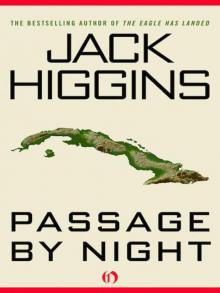 Passage by Night (v5)
Passage by Night (v5)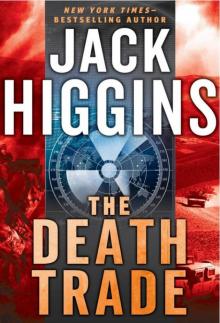 The Death Trade sd-20
The Death Trade sd-20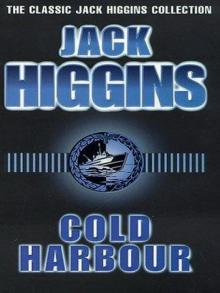 Cold Harbour
Cold Harbour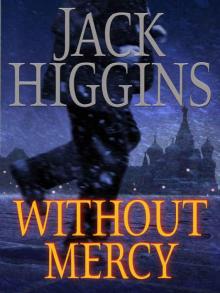 Without Mercy
Without Mercy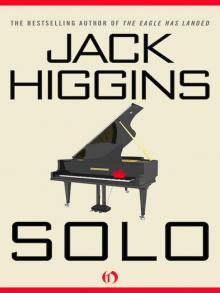 Solo (Aka the Cretan Lover)(1980)
Solo (Aka the Cretan Lover)(1980)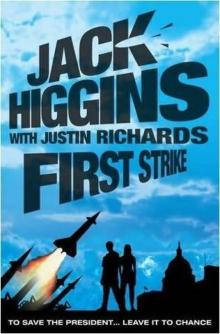 First Strike
First Strike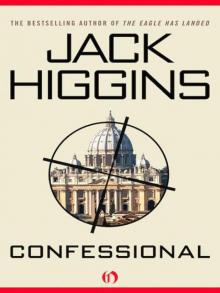 Confessional - Devlin 03 (v5)
Confessional - Devlin 03 (v5)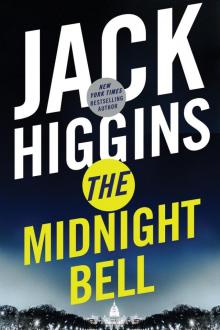 The Midnight Bell
The Midnight Bell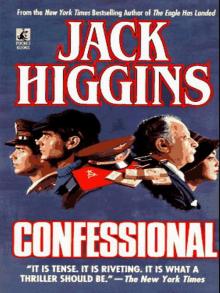 Confessional
Confessional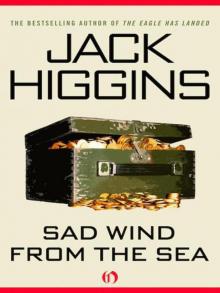 Sad Wind from the Sea (v5)
Sad Wind from the Sea (v5)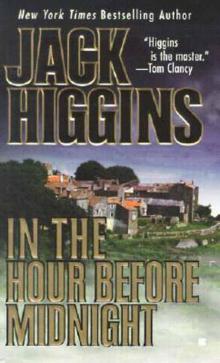 In The Hour Before Midnight aka The Sicilian Heritage
In The Hour Before Midnight aka The Sicilian Heritage Wrath of the Lion
Wrath of the Lion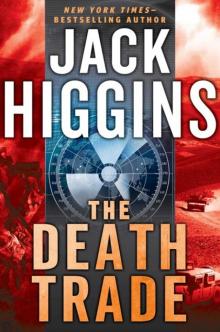 SDillon 20 - The Death Trade
SDillon 20 - The Death Trade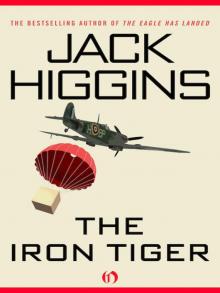 the Iron Tiger (1974)
the Iron Tiger (1974)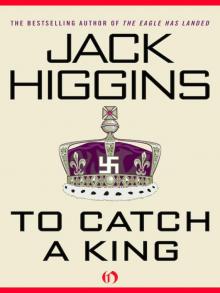 To Catch a King
To Catch a King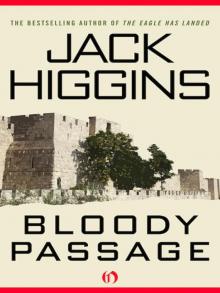 Bloody Passage (1999)
Bloody Passage (1999)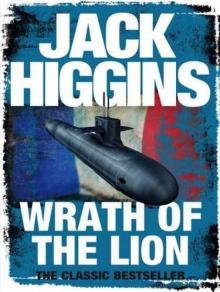 Wrath of the Lion sd-8
Wrath of the Lion sd-8 Sharp Shot
Sharp Shot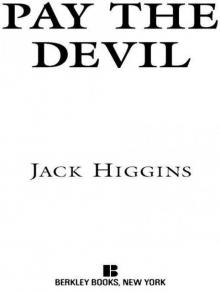 Pay the Devil (v5)
Pay the Devil (v5) A Devil Is Waiting
A Devil Is Waiting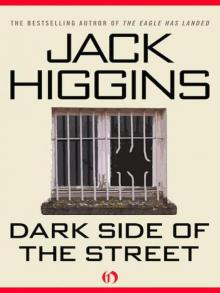 Dark Side of the Street - Simon Vaughn 01 (v5)
Dark Side of the Street - Simon Vaughn 01 (v5)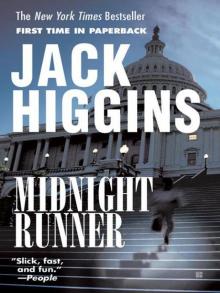 Midnight Runner - Sean Dillon 10
Midnight Runner - Sean Dillon 10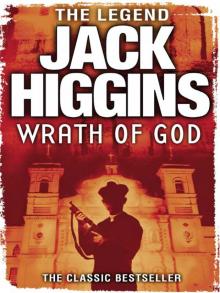 Wrath of God
Wrath of God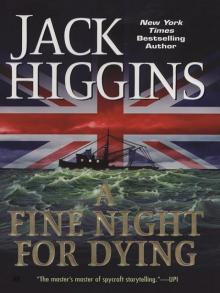 A Fine Night for Dying
A Fine Night for Dying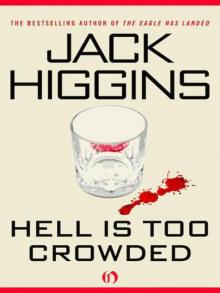 Hell Is Too Crowded v5)
Hell Is Too Crowded v5)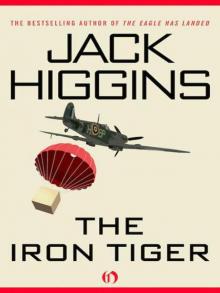 the Iron Tiger (v5)
the Iron Tiger (v5)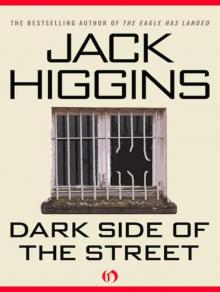 Dark Side of the Street pc-5
Dark Side of the Street pc-5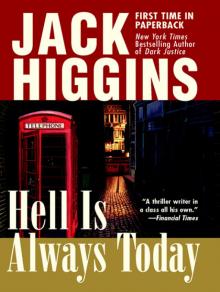 Hell Is Always Today
Hell Is Always Today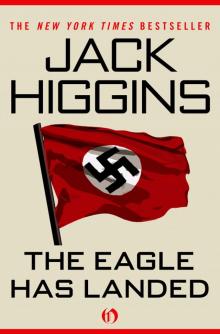 Eagle Has Landed
Eagle Has Landed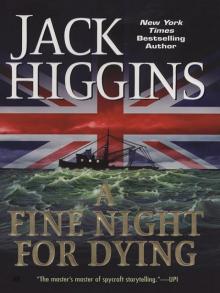 A Fine Night for Dying pc-6
A Fine Night for Dying pc-6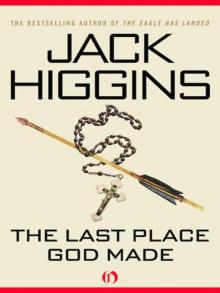 the Last Place God Made (v5)
the Last Place God Made (v5)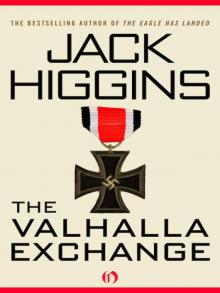 the Valhalla Exchange (1976)
the Valhalla Exchange (1976)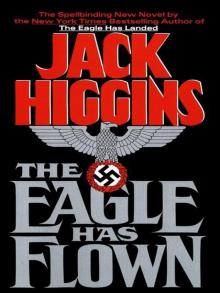 The Eagle Has Flown
The Eagle Has Flown Sure Fire
Sure Fire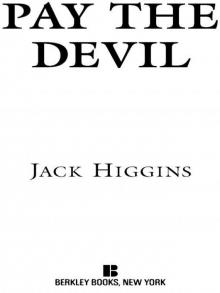 Pay the Devil (1999)
Pay the Devil (1999)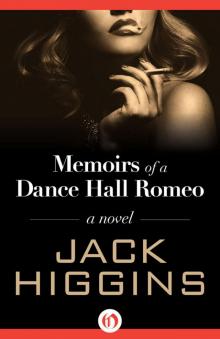 Memoirs of a Dance Hall Romeo
Memoirs of a Dance Hall Romeo![a Prayer for the Dying (1974)[1] Read online](http://i1.bookreadfree.com/i1/04/02/a_prayer_for_the_dying_19741_preview.jpg) a Prayer for the Dying (1974)[1]
a Prayer for the Dying (1974)[1]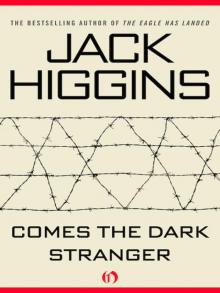 Comes the Dark Stranger
Comes the Dark Stranger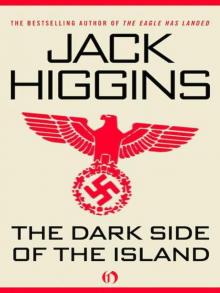 Dark Side Of the Island (v5)
Dark Side Of the Island (v5)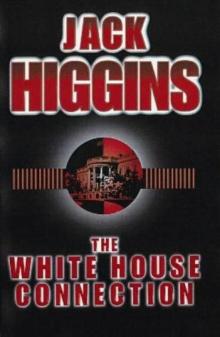 The White House Connection sd-7
The White House Connection sd-7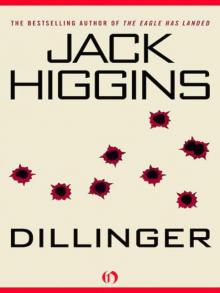 Dillinger (v5)
Dillinger (v5) Eye of the Storm
Eye of the Storm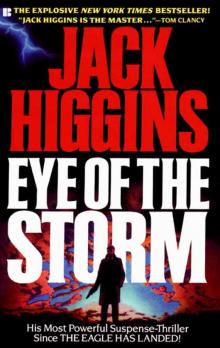 Eye Of The Storm aka Midnight Man
Eye Of The Storm aka Midnight Man A Darker Place
A Darker Place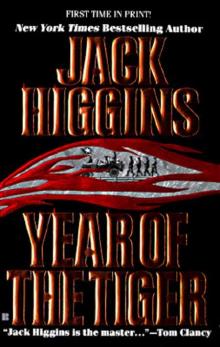 Year Of The Tiger
Year Of The Tiger Death Run
Death Run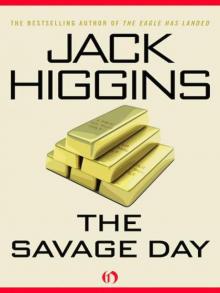 the Savage Day - Simon Vaughn 02 (v5)
the Savage Day - Simon Vaughn 02 (v5)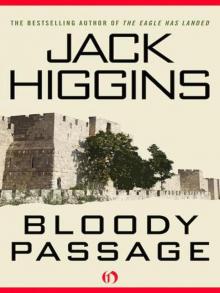 Bloody Passage (v5)
Bloody Passage (v5)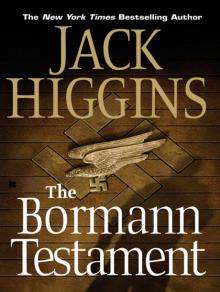 The Bormann Testament
The Bormann Testament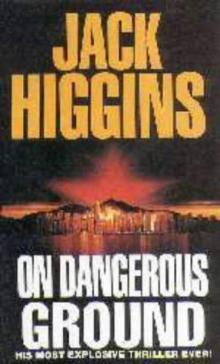 On dangerous ground sd-3
On dangerous ground sd-3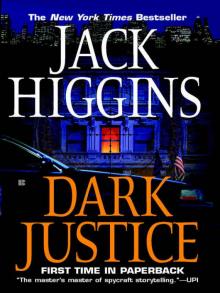 Dark Justice
Dark Justice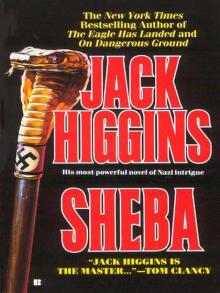 Sheba
Sheba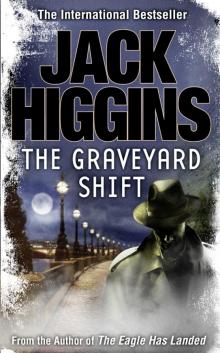 The Graveyard Shift
The Graveyard Shift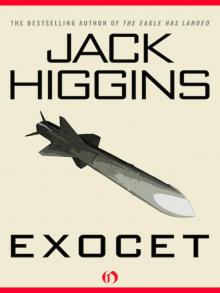 Exocet (1983)
Exocet (1983)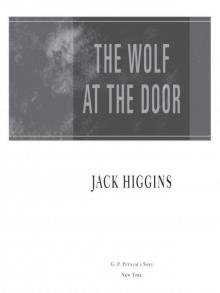 The Wolf at the Door
The Wolf at the Door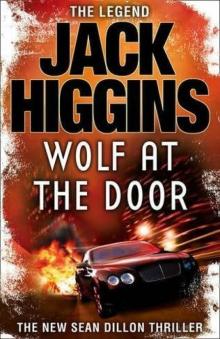 The wolf at the door sd-17
The wolf at the door sd-17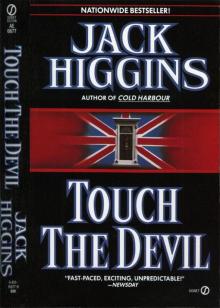 Touch The Devil
Touch The Devil The President’s Daughter
The President’s Daughter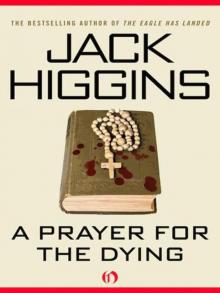 A Prayer for the Dying (v5)
A Prayer for the Dying (v5)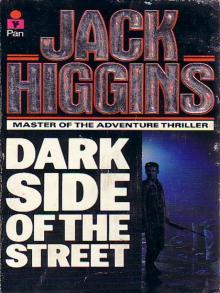 Dark Side Of The Street
Dark Side Of The Street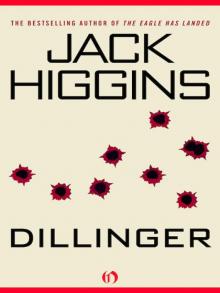 Dillinger (1983)
Dillinger (1983)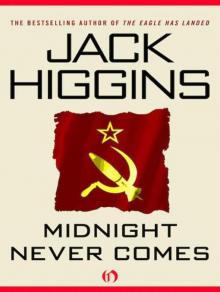 Midnight Never Comes pc-4
Midnight Never Comes pc-4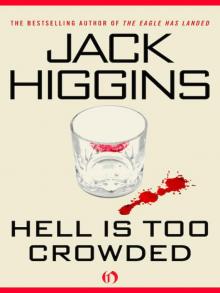 Hell Is Too Crowded (1991)
Hell Is Too Crowded (1991)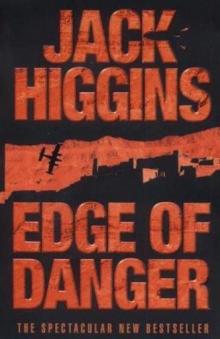 Edge of Danger sd-9
Edge of Danger sd-9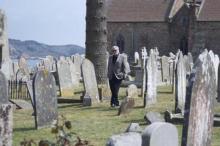 The Thousand Faces of Night (v5)
The Thousand Faces of Night (v5)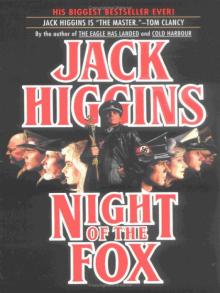 Night Of The Fox
Night Of The Fox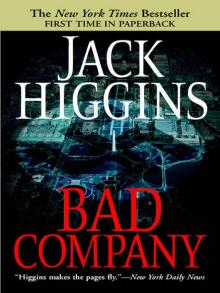 Bad Company
Bad Company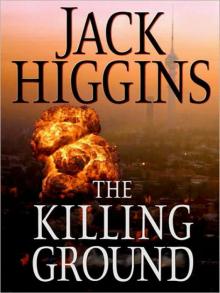 The Killing Ground
The Killing Ground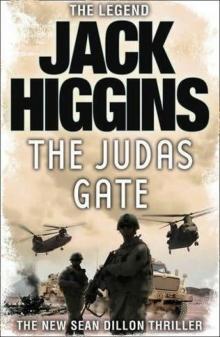 The Judas gate sd-18
The Judas gate sd-18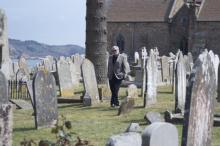 The Thousand Faces of Night (1961)
The Thousand Faces of Night (1961)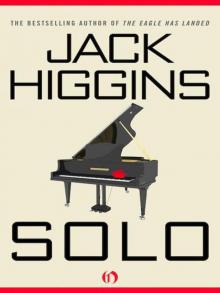 Solo (Aka the Cretan Lover) (v5)
Solo (Aka the Cretan Lover) (v5)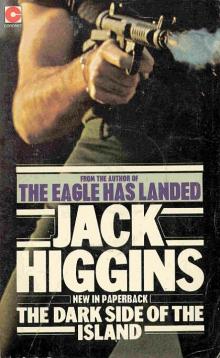 The Dark Side Of The Island
The Dark Side Of The Island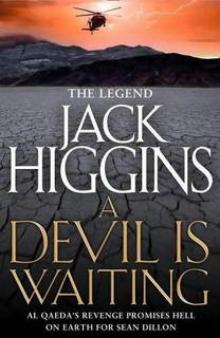 A Devil is vaiting sd-19
A Devil is vaiting sd-19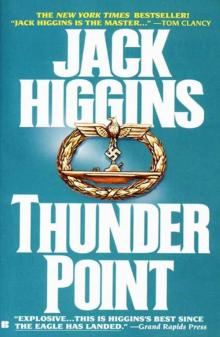 Thunder Point
Thunder Point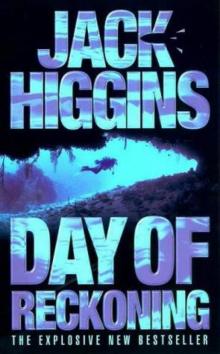 Day of Reckoning sd-8
Day of Reckoning sd-8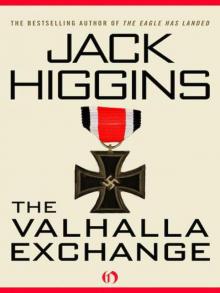 the Valhalla Exchange (v5)
the Valhalla Exchange (v5)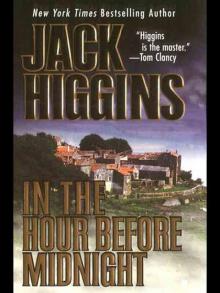 In the Hour Before Midnight
In the Hour Before Midnight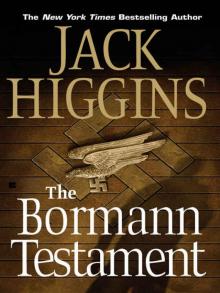 The Bormann Testament (The Testament of Caspar Schultz)
The Bormann Testament (The Testament of Caspar Schultz) The Judas Gate
The Judas Gate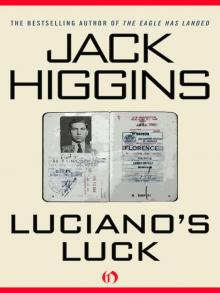 Luciano's Luck
Luciano's Luck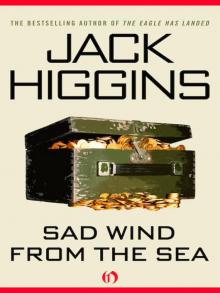 Sad Wind from the Sea (1959)
Sad Wind from the Sea (1959)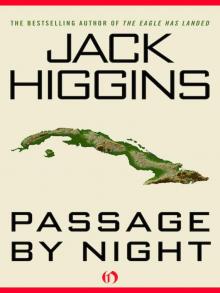 Passage by Night (1987)
Passage by Night (1987)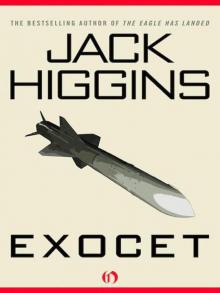 Exocet (v5)
Exocet (v5)